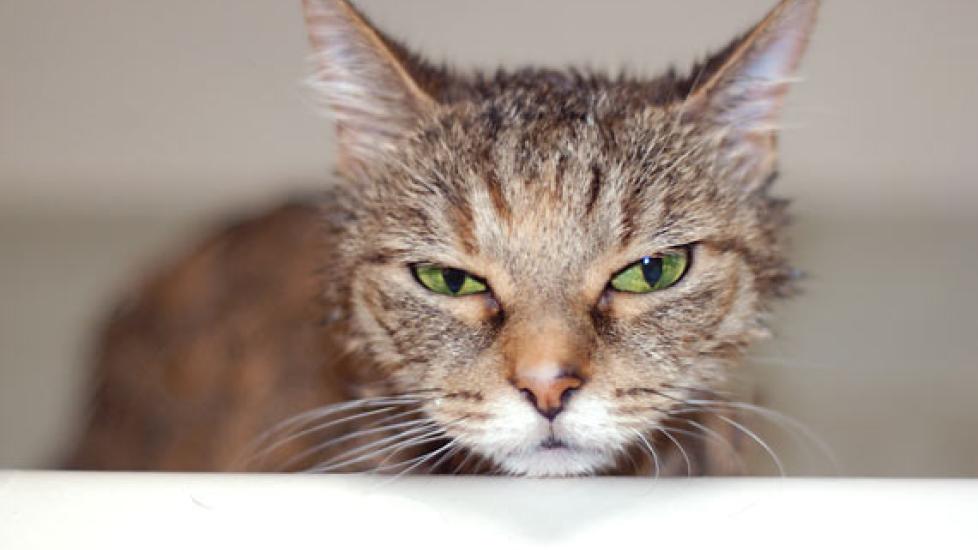Cat Myths and Fallacies
There are tons of fallacies and myths that surround cats. Here are some of the ones I encounter most frequently. See if you can guess which statements are true and which are false.
1. All cats love catnip.
This is false. The ability to be able to enjoy catnip is actually genetic. For those cats that are sensitive to effects of catnip, reactions can differ. For some, the herb acts almost like a drug, making them lose all inhibitions. As a child, my family shared our home with a cat that acted in a drunken fashion when exposed to catnip. He would actually stagger on his feet and seem to see things that weren’t there. For other cats, the reaction is more tempered. One of the cats that I currently live with loves to roll in the herb when I place it, in its dried form, on the floor. She’ll roll around in the catnip for 10-15 minutes and then she’s done.
2. Some cats like water.
This one is true. While many cats do dislike water, some cats actually even enjoy swimming. I have one cat that enjoys playing in water. He will climb in the middle of the water bowl and splash the water. He will also climb on the toilet stool, place his front legs in the water, and splash the water out of the bowl and onto the bathroom floor. He enjoys playing in the flowing water in our water fountain also.
3. Cats and dogs can live together peacefully.
In most cases, this also is true. Cats and dogs can become very close friends. While I don’t currently share my home with a dog, I have kept dogs and cats together in the past. I’ve even lived with a dog and cat that slept curled up together on a regular basis.
4. Cats cannot be trained.
False! Cats can be trained and can even learn to do tricks, if desired. There are plenty of cat owners who have clicker trained their cats. Training your cat to do simple tricks can actually be a fun way of interacting with your cat and a great method of bonding.
5. Cats exhibit certain behaviors out of spite.
This is also false. Unfortunately, it is a myth that persists. Cats do not pee or poop outside of the litter box, scratch your furniture, or engage in other behaviors because they are upset with you. The key is being able to understand and accept normal cat behavior. What to you may seem an undesirable behavior (for instance, clawing your couch) is, to your cat, a perfectly normal behavior. In this case, your cat is marking his territory, sharpening his claws, and perhaps also stretching his muscles. Your cat is not being spiteful. He’s simply being a cat. Whatever the behavior, there is a reason for it that has nothing to do with spite.
6. Cats are independent, anti-social creatures.
If you live with a cat, you probably already realize that this is false. Cats can actually be very social creatures and often seek out companionship and attention. All six of my cats solicit attention from me on a regular basis. At times, they pretty much demand the interaction, head butting and pawing at me if I’m not paying attention. This is one of the things I enjoy most about living with cats.
7. Cats need regular veterinary care.
I hope that all of you know that this is true. At a minimum, your cat needs to visit the veterinarian at least once a year for an examination. Many veterinarians recommend twice yearly visits, particularly for mature and senior cats. Cats with health issues may require even more frequent veterinary care. Though veterinary visits may seem expensive, regular preventive care will actually save you money in the long term. It is less costly to prevent disease than treat it. Where disease cannot be prevented, catching the illness early will provide a better chance of successful treatment at a lower cost than treating a severely ill cat. Even more important than the financial aspect, preventive health care can prolong your cat’s life and will ensure a higher quality of life for your cat.
How did you do? Did you guess them all correctly? Were you surprised at any of them? What other fallacies or myths about cats can you think of?

Dr. Lorie Huston
Image: Nick Barounis / via Shutterstock
